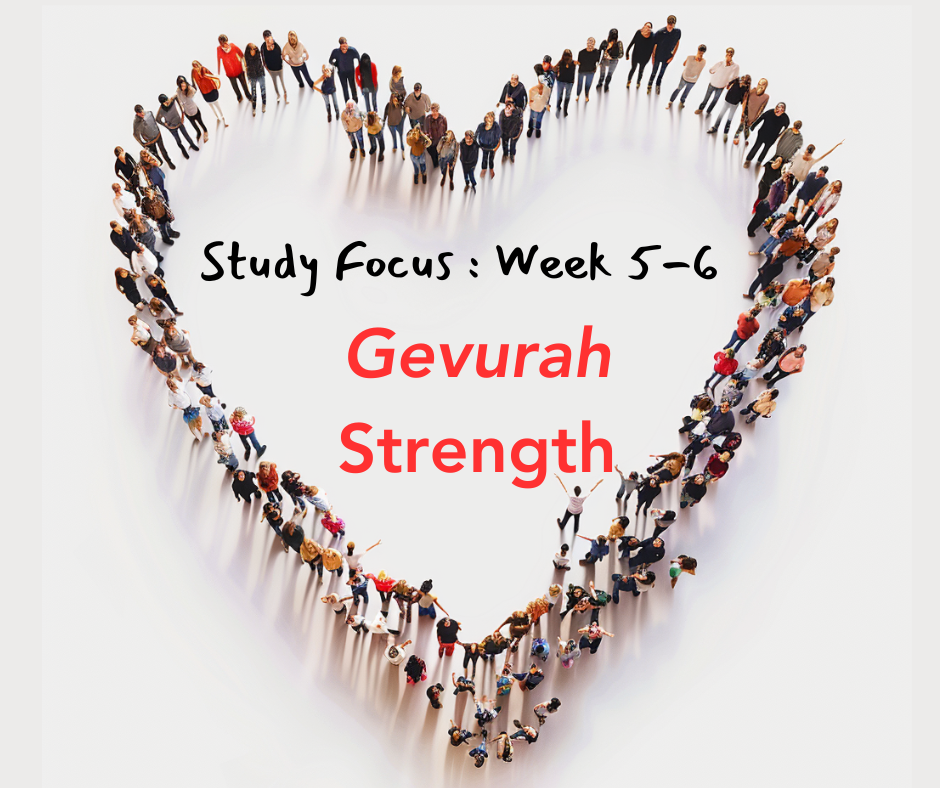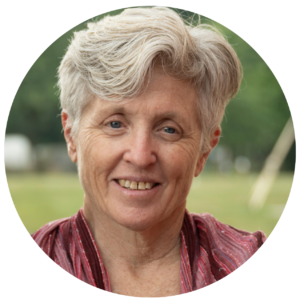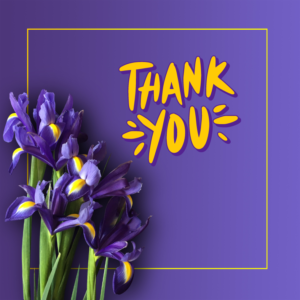
Omer Essay WEEK #6 - Supporting Strength/Gevurah in Ourselves & Others
The very first bracha (blessing) of the Shemoneh Esreh prayer spotlights our Avot Hakedoshim: Avraham, Yitzhak, and Yaakov, our sacred patriarchs. Our forefathers and foremothers are the torchbearers of our Jewish legacy; their behavior set the standard for all future descendants. Rav Shlomo Wolbe notes an important but often overlooked contribution that the patriarchs and matriarchs made: Much of what we know about the Creator is gleaned from their experiences. Their conduct, interactions, and deeds reveal knowledge about God. When we begin the Shemoneh Esreh prayer, our intimate conversation with our Creator, we invoke the forefathers who taught us how the Middah (soul-trait) of gevurah claims such a significant role in our lives.
Based on Midrashim, Rabbi Eliyahu Dessler tells us [1] that Avraham Avinu's defining Middah was chesed (loving-kindness); Yitzchak Avinu's defining Middah was gevurah (strength and restraint). Yaakov Avinu's characteristic of emet (truth) can be viewed as a synthesis of the Avraham and Yitzhak – chesed and gevurah.
Many of the most difficult choices we make in life begin with a sense of tension and an awareness of its complexity. We are taught to choose between life and death, good and evil, but we often reach a behira (choice) point in which we are called to find the appropriate balance between two opposing forces that aren’t always clear. The easiest course to follow may appear to be suppressing one side of the equation and therefore eliminating the tension.
Rabbi Dessler notes that Avraham and Yitzhak were both tested in ways that required them to act against their dominant and naturally outstanding Middah. For Avraham, whose natural strength was chesed, his greatest test was Akeidat Yitzhak, which required him to act contrary to the message of loving-kindness he had taught the entire world for decades by sacrificing his own son, Yitzhak. Sarah Imaenu (our foremother) experienced the Akeida of her son in a different way. Her naturally strong middah was gevurah, and so she was the one who had the strength to send Yishmael away from home. Her experience of the Akeida was just the opposite of Avraham’s. For her, it was the reality check of almost losing him that amplified and intensified the complexity of the situation for her. Sarah was brought to her knees by the thought of losing her son and with the strictness (gevurah) that her Creator had tested Avraham with.
In our current worldwide situation, the Jewish people are being tested once again. We are being asked to realign our gevurah and chesed with our emet. For many of us, we are being called to act in ways that are rubbing up against our natural Middah inclinations, as we become more aware of the complexity and fragility of our situation. Our reality shifted tremendously after the events of October 7th. It is our moral responsibility to step out of our habitual patterns and comfort zones, and address with the appropriate measure of gevurah and chesed as we envision and help to shape the future of the Jewish nation.
Yaakov experienced a life of unbroken travail – from being forced to flee from his brother Eisav, to the twenty years in Lavan's house, to the confrontation with Eisav, to the twenty-two years that he mourned for Yosef. Only Yaakov could have said, "Few and bad have been the days of the years of my life. . .” (Genesis 47:9). We learn that holding fast to two competing poles- chesed and gevurah - is the most difficult task. Cultivating a sense of integrity and balance between gevurah boundaries and chesed towards others was a most demanding task for Yaakov. Yaakov’s role as a father, as a spouse, as a servant of God, was infused with an ongoing dance of Middah alignment and rebalancing. He illustrates for us the essence of a true seeker of emet and kedusha- holiness.
Too frequently, when we hear something with which we disagree, our initial inclination is to suppress it. Yet often, both on an individual and a communal level, we may be able to benefit from an airing of both sides of this tension. On most important issues that affect us as individuals and as a community, there is more than one perspective that is relevant. The truth is more likely to emerge from the interaction between the varying approaches than from one side trying to suppress the other. One of the ways in which we can support our acts of gevurah, as well as the actions and outlooks of others, is through the intentional setting of boundaries and by honoring the boundaries of others. The Middah of gevurah helps us to set healthy limits, enabling us to express chesed, loving connection, in a wholesome way.
Gevurah makes it possible for us to experience intimacy and deep connection with others. Gevurah helps us draw wise boundaries and lets us know when to make time for a friend or for self-care, when to stay late at work or leave early. Gevurah helps us muster the courage to set boundaries by doing or saying what's right, especially when this does not come easy to us. Gevurah helps us say yes or no clearly and honestly. Gevurah teaches us how to avert our desire to please or our aversion to disappoint. And gevurah invites and enables us to hear, to listen, to heed to the boundaries that others have put up for themselves.
On the other hand, when we neglect to realign the Middah of gevurah we may exercise our strength thoughtlessly or selfishly. Without an awareness of our innate gevurah we may blurt things out inappropriately or act impulsively. Without a balanced sense of gevurah we can lose our distinctive uniqueness, our greatness, or we can deny others
their unique individuality. Without embracing our gevurah we may accept other’s opinions as our own or project our unfiltered thoughts and feelings onto others.
So how do we practice gevurah, especially during our Omer challenge? We begin our practice of gevurah by setting solid boundaries and infusing them with chesed, so that we connect with others instead of pushing them away or walling ourselves off. We can learn to express opinions clearly and firmly but also with flexibility and openness. We can criticize others constructively, but with compassion. Using our innate gevurah to take initiative and in a spirit of collaboration is the epitome of supporting others in their gevurah. This is our path towards holiness.
[1] See for example, Michtav M’Eliyah vol. 2 pp. 160-5.
Your destination can be anywhere and anything as long as it is meaningful for you. Please email us at helaine@mussarinstitute.org and share your goal and your progress or struggles.
 - Helaine
- Helaine
Helaine Sheias, Ph.D., is the Assistant Director of Programming at TMI. She made Aliyah to Israel in her teens, served in the IDF, and settled there for more than two decades. She is a graduate of The Mussar Institute Yesod Facilitator Training Program and Manchim Advanced Facilitator Training. She facilitates many TMI courses facilitating circles of transformation and change by modeling spiritual awakening, and self-reflexive learning, or Hitlamdut. Facilitating Mussar courses brings Helaine deep joy and a continuous sense of awe and wonder.
Questions For Reflection:
1. How do you envision yourself in relationship with others being aligned with a solid sense of gevurah and chesed? Where do you feel that you need to invest more energy in your relationships so that you are emanating goodness and Godliness in your interactions?
2. How do you see the act of honoring one’s boundaries as an integral part of your Omer challenge? How do you see yourself shifting from ‘being triggered’ by another’s boundaries to a place of acceptance and honoring them?
3. What elements of our patriarchs and matriarchs and their legacy to you carry with you? How do you see yourself continuing in their footsteps?

Special Dedication:
